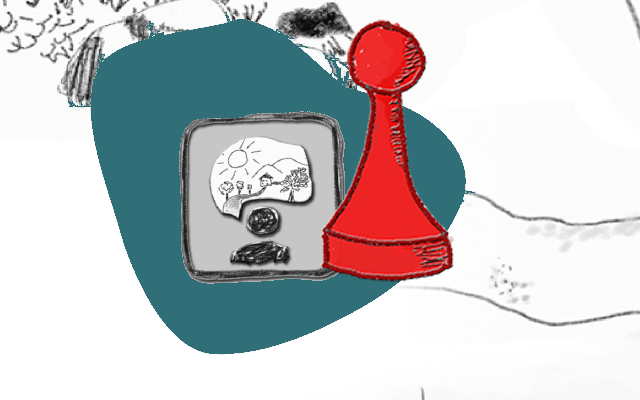Module -Storytelling
Selecting competences – the purpose of storytelling
The selection of the story depends on the purpose of the storytelling session. Do you want to support competence development, use the story as introduction to discuss a certain topic, motivate your learners to tell their own stories? Have in mind what you want to reach and which effects the story is supposed to have. The StoryComp project identified ten key purposes of storytelling in basic and civic education (see Methodological Framework ▾ ).These key purposes aim for promoting
 Motivation and awareness
Motivation and awareness
A story is used to make gain the attention of people, to make them aware of issues that are told and to activate
them to get to learn more about, to become active, or to feel committed to something.
Example: A story to make people aware of the necessity of living a fair and sustainable life.
 Belongingness
Belongingness
Stories are told to sense a kind of togetherness, to feel you part of a shared event and share emotions that come with it.
Example: A story with a feel good content and active participation of the listeners; a story with a
content that the participants can identify with
 Critical thinking
Critical thinking
Stories are told to make people aware of other ways to look at things and thus to enable them to think critically
about issues in other ways than they would have from their own experiences only.
Example: A story about a human conflict so that the listeners may feel challenged to i
dentify their position on the matter and at the same time reflect on the other participants' opinion which may
be opposite to their own (e.g. a "me too" or "black lives matter" story)
 Processing knowledge
Processing knowledge
Stories provide the listeners with content that may be more easily processed than written materials. In that way
stories may help people process knowledge.
Example: a story about a journey, so listeners get an idea of the geographical, logistic and
cultural content of the journey (places, countries, connections impressions)
 Language acquisition
Language acquisition
Stories may help to acquire language skills both by the content of the story and by the reflective talks the
listeners and the story teller may engage in. Thus stories help to gain linguistic competences.
Example: a story in which listeners are invited to give a response every time a particular kind
of word is used (for instance a word that refers to an important human value)
 Creativity & expression
Creativity & expression
Stories may be told to demonstrate the creativity of the story teller and the story, but the stories at the
same time trigger/evoke creativity among the listeners, who in turn thus may acquire creative competences.
Example: A real fictitious story that is really a fantasy (Nils Holgorsen’s travels/
the wonderful travels if Nils) to trigger the minds of the listeners to imagine along and thus develop
creative thoughts and competences.
 Identity & recognition
Identity & recognition
Stories are told to make people part of a common heritage or tradition to make them feel rooted and recognized.
Example: In the Netherlands stories about the common fight against the water are an example of such stories.
 Multiple perspectives
Multiple perspectives
Stories are told to stress the fact that one and the same situation may be seen differently by different actors in
the story, as well as in actual life situations
Example: An example might be the parable of the lost Son, in which the son that
stay home and the one who went away, as well as the father all have different perceptions and
evaluations of the same situation.
 Communication skills
Communication skills
Stories are told to help people to acquire listening skills interpretative skills, as well as active
communicative skills such as speaking up, formulating, expressing yourself etc. This may be done in the
story through the story or by talking about the story.
Example: Stories about a journey made. Listeners may be invited to add fragments of how they
have experienced the journeys they themselves have made. Together they thus enrich the story and gain
communicative competences.
 Empowerment
Empowerment
Stories may be told about people who overcame the doubt they had about themselves and became successful in life.
This may be an opportunity to identify with the protagonist of the story an to discuss, the odds on one’s own perspectives
Example: A story may be told about how a cleaner of offices by carefully watching the work
processes there gradually worked him/herself up to become a ICT and organization consultant.
Obviously this may lead to a lot of talking and possibly, given the right moderation, to empowerment.
 |
 |
 |






























